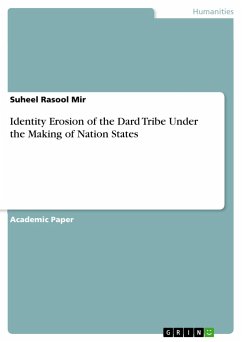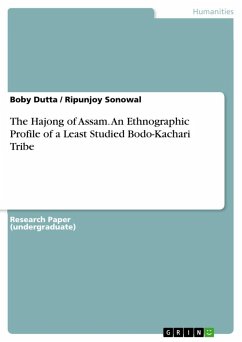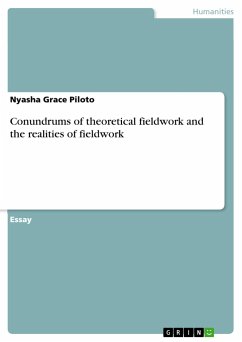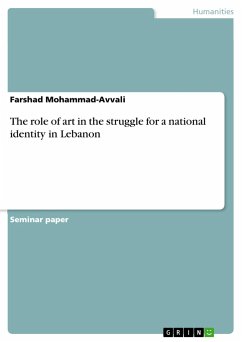Academic Paper from the year 2018 in the subject Ethnology / Cultural Anthropology, The University of Kashmir, language: English, abstract: Gurez, a high-altitude valley in North Kashmir's Bandipora District is home to 25,000 Dards, who are part of a wider group of Dardic-Shina speaking people spread across the Northern areas of Pakistan and Ladakh as well as parts of Afghanistan. Dard Shin or Dard tribe once had their homeland spread across the valleys, tucked inside the great Himalayas at the edge of north Kashmir from Chitral and Yasin, across the Indus regions of Gilgit, Chilas and Bunji to Gurez valley. Gurez valley is an isolated because of harsh weather area witness during winter season and its location between Indo-Pak Border.The valley is hotspot witnessing frequent shelling, that erupts between the two South Asian neighbors has not only made this beautiful valley largely inaccessible to people from wider society, but also to the Dard Shin villagers who have had to fleetheir homes on the many occasions when hostilities between India and Pakistan amply. The tribal identity of Dards across Gurez was caught in the pandemonium following the emergence of India and Pakistan as Nation states in 1947. People are trapped in the vicious circle of various sensitive factors such as inaccessibility, marginality of resources, fragility, poor carrying capacity, vulnerability of non-farm employment, un-explored niches, out-migration and erosion of Dard tribe due to displacement etc.The Dard-Shins are believed to be the descendants of the early Aryan settlers who arrived more than two thousand years ago. References to them can be traced back to the writings of Herodotus. The onslaught of modernization and the partition that divided the Dard Shin homeland by a hostile Line of Control between India and Pakistan, Once the gateway to Central Asia, Gurez Valley inhabited by Dard-shin speaking people in a forgotten corner of Kashmir is still home to the Dard people. This tribe squeezed to the remote and hidden Gurez valley in north Kashmir struggling to save their vanishing Shina language, their culture, traditions and a distinct identity. The paper therefore aims to highlight the repercussion of aftermath partition and identity erosion of Dard tribe of Gurez valley Kashmir.
Hinweis: Dieser Artikel kann nur an eine deutsche Lieferadresse ausgeliefert werden.
Hinweis: Dieser Artikel kann nur an eine deutsche Lieferadresse ausgeliefert werden.








